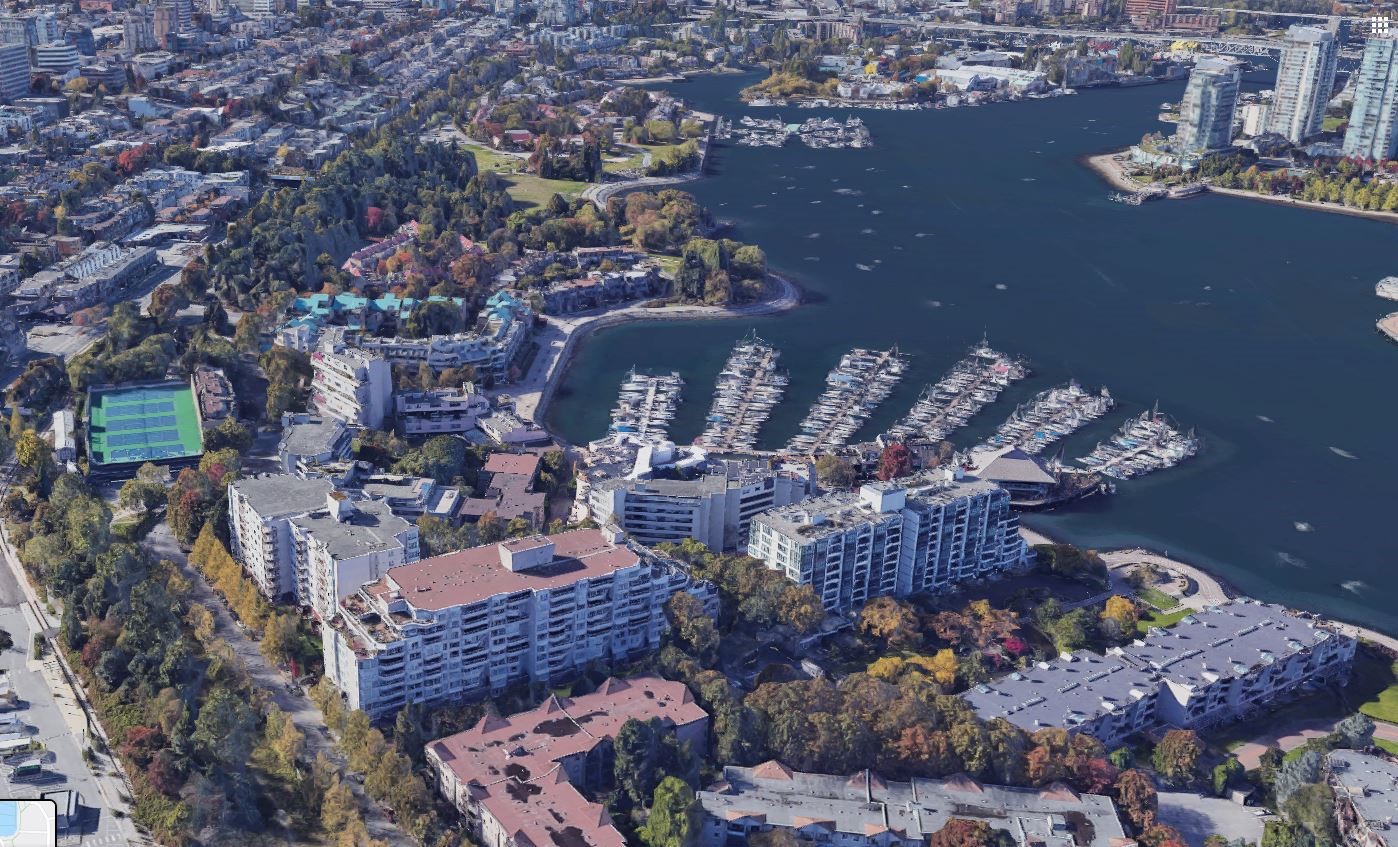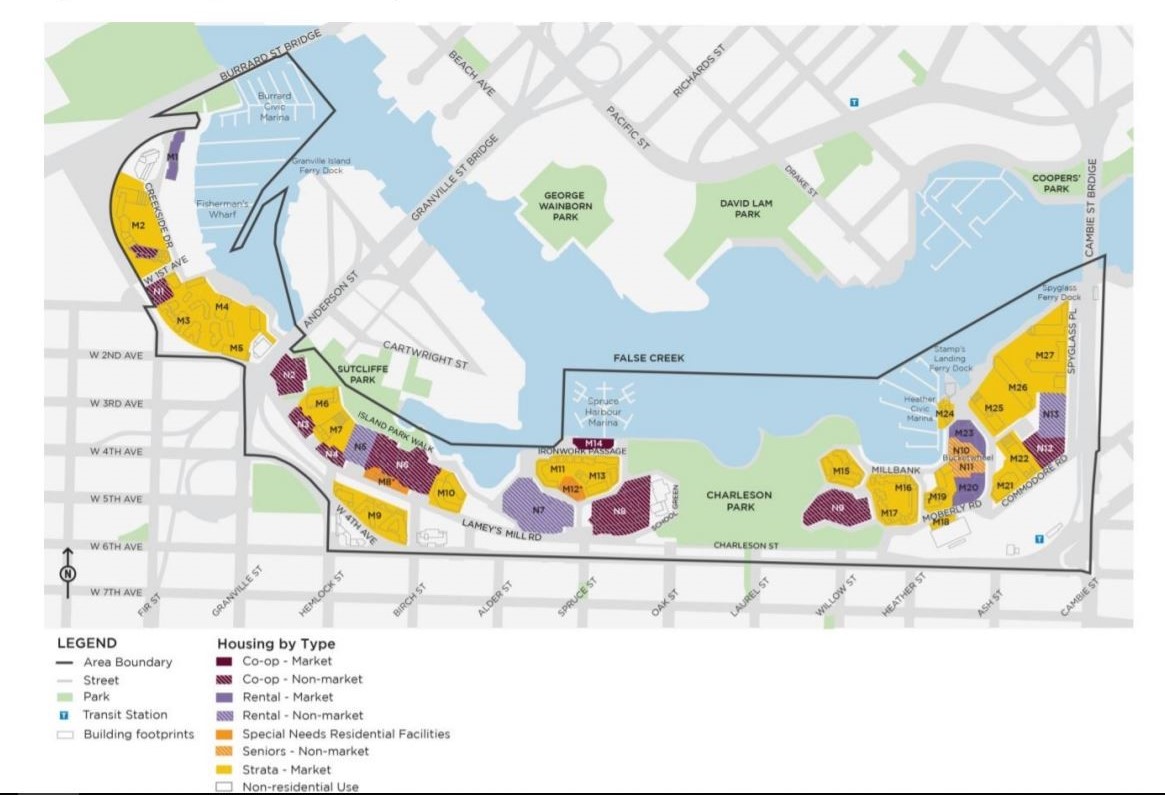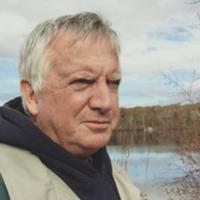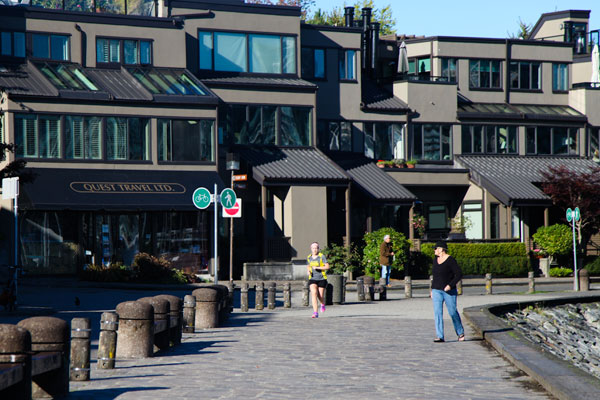The real-estate lords of Vancouver and their lieges in municipal government have cast their hungry gaze on what is North America’s best model of sustainable and socially equitable living: the neighbourhood of False Creek South.
The current administration has cut off any negotiations on renewing leases for city-owned land there, leases set to expire in 2036, leaving social housing co-op and condominium owners uncertain of their future and, in some cases, preventing residents from refinancing their mortgages or selling their homes.
City hall claims it bases its plans for the neighbourhood on 10 principles, nine of which are as vaguely friendly sounding as “diversity” and “sustainability and resilience.” It’s the tenth that sounds the alarm: “Plan with a fiscally responsible approach for the long-term health and sustainability of the City’s Property Endowment Fund.”
Making a priority of plumping the Property Endowment Fund necessarily involves not preserving what was created decades ago, but estimating current land values around False Creek. Based on those values, the lands under South False creek co-ops, social housing and land-trust condominiums are worth billions.
The current administration, for reasons of its own, has stalled negotiations with current residents. Under the Vision council, negotiations had proceeded based on a more or less tacit assumption that existing residents would be re-housed on the site. But the costs to residents for their re-housing has not been established, nor has the ultimate building form intended to accommodate them been determined.
Based on the absence of any city commitment to extending the original mix of market-rate and non-market rate housing on the site, it seems likely that most new units will be unaffordable market-rate units and thus will not conform to the principles that drove the original project, i.e. a commitment to a social mix of one-third low income (mostly subsidized social housing for the disabled, and elderly), one-third non-market middle income (mostly co-ops), and one-third market (strata units on leased land).
Most importantly, relocation policies passed by the previous council do not seem to insure that replacement units offered to existing residents will be preserved as permanently affordable non-market units when and if they vacate. Thus 1,900 existing non-market housing units will likely be erased from the city’s already inadequate inventory of affordable housing options.
In short, what is now a beacon of equitable mixed-income housing policies from the past will likely become just one more largely unaffordable high-rise project on False Creek.

Can we estimate the costs and consequences for South False Creek based on nearby precedents? Probably.
Olympic Village at the east end of the site has an FSR (floor to surface ratio) of 2.7. That means the final interior floor space is 2.7 times total site area. The proposed Sen̓áḵw project at the west end of the site (under the Burrard Bridge) is four times denser, about 11 FSR. (This calculation is based by multiplying the announced number of units, 6,000, by 1,000 square feet per unit, divided by 11 acres of land). For comparison, an FSR of 11 is three times the density of Yaletown on False Creek’s north shore.
From these two examples we might guess that the potential profits from site redevelopment would be substantial. The South False Creek site is 55 hectares or 136 acres in size, with an estimated land value of (given local land sale comparables assuming in excess of $1,000 per square foot of ground) could be well over $5 billion.
This of course brings us to the point of this little exercise in real estate economics. And back to cash-conscious “principle 10.”
It seems the city is approaching this question largely as a market-based project, hoping to extract maximum profit from lands that were specifically planned in the 1970s to promote an alternative to the real estate market. Even back then, the need was seen for an alternative and permanently affordable way of providing housing for Vancouver citizens.
South False Creek is in the opinion of many North America’s most successful experiment in treating housing as a right rather than as a commodity. It is also a remarkably successful experiment in mixing income classes in one neighbourhood.
In fact, it is unquestionably one of North America’s most successful urban designs, period. South False Creek provides housing, commercial services, and schools in a park-like setting where families can oversee their children’s play from ample decks and windows within shouting distance.
If Vancouver’s developers and their friends in city hall do follow the path they seem to be on, the future will see the original social concept for South False Creek obliterated. In its place, 1,900 units of housing offered to current residents on the bottom floors of towers containing 7,000 units of unaffordable condo product. That’s exactly the kind of housing that is killing this city.

It should be noted that the residents at False Creek South, aside from those in “social housing” units, have paid from their own incomes the cost of building and maintaining their homes. Co-op members and strata owners on leased land pay taxes, pay off mortgages, and maintain their properties like anyone else. In addition, they freely welcome the rest of the city to enjoy a park-like setting unlike any other.
The city, rather than abandoning a housing concept of mixed-income, non-market housing should instead expand on what has won global admiration. And it needn’t mean sacrificing added density. Indeed, because the city owns the land, it could dramatically expand the number of non-market units on the site at no cost to the taxpayers. Co-op or land trust housing pays for itself if land costs are manageable and in this case they are. It’s not the house that costs a lot in this city; it’s the land. And in this case the city not only has the land, it has a rich tradition upon which to build.
Come on Vancouver, we have a housing crisis. Don’t sell off a giant chunk of our affordable housing. Do the right thing and expand, not destroy, the South False Creek model. ![]()
Read more: Housing, Municipal Politics
















Tyee Commenting Guidelines
Comments that violate guidelines risk being deleted, and violations may result in a temporary or permanent user ban. Maintain the spirit of good conversation to stay in the discussion.
*Please note The Tyee is not a forum for spreading misinformation about COVID-19, denying its existence or minimizing its risk to public health.
Do:
Do not: